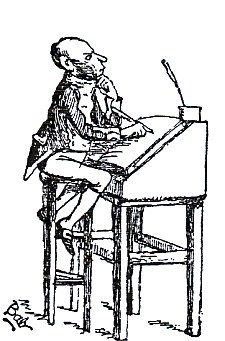The Critic Criticized, or The Books Should Balance
By Frank Behrens
ART TIMES July/ August 2010
 jhdfkjshdfksjh jhdfkjshdfksjh |
When I write about musical CDs and DVDs, I really balk at calling myself a critic, since that word tends to have all sorts of negative baggage. I don’t even like the word “reviewer” and try to use the word “reporter,” which has a more neutral connotation. However, when one writes a column, a conflict arises.
A reporter is expected to give only the facts. A columnist is expected to give an opinion based on those facts. Therefore, the writer runs the risk of being attacked for his opinions more than for the way he presents the facts. A few examples will suffice.
When I reviewed musical recordings for Amazon.com, I once stated that the symphonies of Shostakovich were less than masterpieces, mostly because he had to please the Soviet government and could not speak in his own musical voice. I know now that I should inserted “in my opinion,” but that would not have helped. The result was an e-mail filled with obscenities from a male with a Russian name. I answered as tactfully as I could (my mistake) and received only a familiar two-word command in return.
Again. I was never a fan of a certain tenor, whose voice struck me as unpleasantly constricted. Countless critics have been equally unkind to him—although many say he is better in French operas than in Italian ones. When he was booed at La Scala for his “Celeste Aida,” his reaction was to walk off in a huff after only a few minutes into the 3-hour work.
Well, I should have known better than to give an adverse opinion about this divo and got an angry letter of the “how could I think so” variety from a female who quoted other critics with favorable words about this man. Again, I should have known ahead of time to have included in my review a comment that my opinion is my opinion and others are entitled to theirs. But I didn’t, suffered the consequences, and still wince whenever I hear that tenor’s name mentioned.
Way back in an Art Times Journal article, I took a certain pianist to task for changing some of what a great composer had written in a particular piece. I also brought up a general question of when “stylistic variations” become vandalism. That brought an explosion of negative reaction. One writer let me know that it was this very pianist who had led him to love the music of that composer.
Of course, since then I have thought better of it. The pianist in question is an eccentric personality of undoubted genius, and I can understand why his playing is so loved by so many. I realize now that I should have said so in the article. In short, my comments lacked balance.
Most recently, I was taken to task for not liking the old Al Jolson films. The first e-mail was merely a pair of insults. When I replied, the writer gave two reasons for his reaction: (1) Many people he knew also disagreed with the article and (2) he found the films antique but charming in their antiquity.
As for the first comment, of course many people can be polled and found to disagree with any opinion. (One person can’t understand how I can stand eating spinach. I cannot understand why some people play music at deafening volumes.) As for the second, I had to confess that he was absolutely correct. The very aspects of the six films in question that I found annoying were the ones that he found charming. Add to all that the fact that I can’t stand Jolson as a personality—and many of his contemporaries could not stand him for even more reasons. Nevertheless, I could still admire what he did to the art of singing popular music. But I did not say so in my column. I will try to be more careful in the future.
Of course, there will always be professional carpists. I recall a news columnist using the verb “gyp” and incurring the wrath of a literate reader who objected to the “slur” on all Gypsies, who (he must have felt) did not deserve their reputation for “gypping” the public. A local politician not long ago used the word “niggardly” in a speech and was attacked as a racist by illiterates who thought the word meant something quite different from its actual meaning.
As any person in the public eye must realize one fact: If you are going to stand out there, someone is bound to use you as a target. One can only hope the shots include reasons designed not to hurt but to convince.
